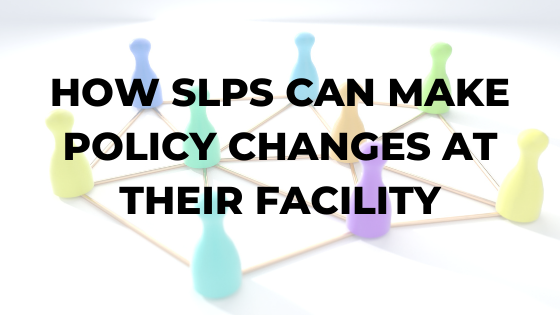When I first started practicing, I realized there were a lot of obstacles impacting the effectiveness of what I did.
As I talked to other SLPs, I discovered I wasn’t the only one experiencing these same challenges.
Things like:
- LIMITED TIME with clients, which makes it hard to make consistent progress.
- HIGH CASELOADS, with limited time to prepare for sessions.
- PAPERWORK, EVALS, AND MEETINGs, without adequate time to manage everything.
- BUREAUCRATIC RED TAPE that allows people with no clinical expertise to call the shots.
- LACK OF RESPECT AND BUY-IN from caregivers and colleagues.
- DIVERSE CLIENT NEEDS, which makes it harder to plan effective sessions.
And there are clients who need help NOW and can’t afford to wait years for the impact of advocacy efforts to trickle down.
That’s why during my first few years in the schools, completely reworked the way I spent my time and the way I viewed my role as an SLP…
Instead of focusing on direct therapy alone, I started focusing on creating change, one step at a time at my facility…
I started by focusing on my district’s process for evaluating students for special education and extended school-year eligibility.
Those steps I took helped a group of students on my caseload get access to summer school during their elementary years (instead of going 3 months with no services).
It also helped a group of students with learning disabilities and developmental language delays get access to consistent support in elementary and secondary school, instead of falling through the cracks.
It all started with those first steps.
Being an SLP is so much more than just delivering direct therapy.
It’s an entirely new way of thinking about your role.
One that will create positive ripples in your facility and the field as a whole.
You’re not just a therapist.
- You’re a facilitator who teaches people how to help children communicate..
- You’re an advocate who stands up for marginalized populations.
- You’re a teammate who works together with professionals, caregivers, and clients to meet common goals.
- You’re a role model for both your clients and other professionals as you show them ways to function more effectively and thrive.
- You’re a leader with real-life expertise that knows what changes need to be made, who can start working towards changes, big and small.
I show you how to make that happen in SLP Learning Academy, my program that helps SLPs create change in their facility and the field, so they have autonomy in how they serve their caseloads.

